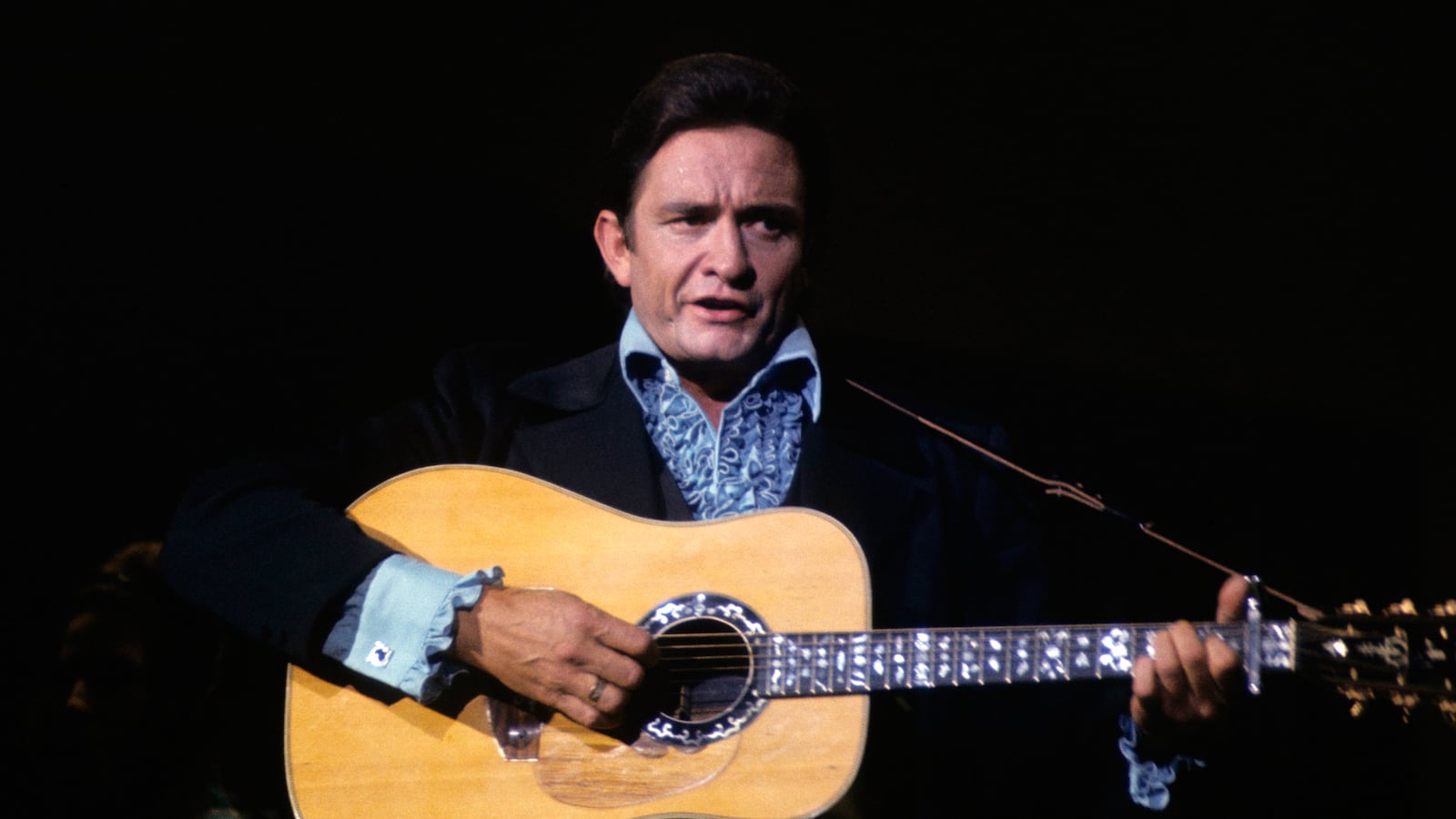
Although Johnny Cash passed away 10 years ago this week, on September 12, 2003, the Man in Black and his music remain as popular as ever. The Johnny Cash legend that has been sold to the public since his passing—in numerous box sets, “bootleg” releases, new biographies, and the film Walk the Line—is one that portrays him as someone who, despite his own contradictions, brought Americans together.
Cash, we are told, appealed to people from all walks of life, all backgrounds and beliefs. As his friend Kris Kristofferson noted at Cash’s memorial, he was as comfortable performing for prisoners as he was for presidents.
But what we have missed in all of this talk of bringing Americans together is that Cash was a deeply political artist. Central to his charisma, in fact, was the way he expressed publicly his position on a number of volatile political issues. At a time when experts tell us that Americans have become irreconcilably polarized, we would do well to learn from Cash, who expressed his views not in ideological terms of left or right, liberal or conservative, red states or blue states, but rather from a perspective of personal experience and empathy.
By the early 1970s, when Cash stood at the peak of his popularity, Americans who knew his work and his network television show recognized that Cash had become a vocal commentator on the vital issues of the day. That he was neither radical nor reactionary is what made Americans pay attention.
Cash spoke out on behalf of Native Americans for so many years that some in the press got the (mistaken) idea that he was part Cherokee. In fact, Cash’s identification with Native Americans sprang from a shared experience of poverty.
A few years after he recorded Bitter Tears: Ballads of the American Indian (1965)—a record filled with references to Native Americans being marginalized—Cash performed at the St. Francis Indian Mission in South Dakota to help raise funds for a new school. He clearly related to the economic despair he saw, but could not understand why the government had not stepped in the way it had intervened to help his family during the Great Depression. “I wonder where in the hell’s the federal aid, the state aid, where’s the funds the people’s supposed to have for things like this?” This was an artist whose politics came from the gut.
Moreover, by the late 1960s, thanks to the At Folsom Prison and At San Quentin albums, Cash’s audience understood his identification with prisoners. Cash’s own outlaw image as a man who had spent a few nights in jail fascinated audiences, but it also lent him a certain moral authority on the question of prison reform. Compared to much of today’s discourse on prisons in the U.S., Cash’s views on criminal justice—“I don’t see anything good come out of a prison”—might surprise us, but in the context of the times, he seemed reasonable, calling only to make better men out of prisoners and thus bring down crime and make American families safer.
Most important, in the late ’60s and early ’70s, years we associate with political polarization, Cash did not shy away from going on record (vinyl or otherwise) with his feelings about the Vietnam War. Like many veterans (and other country-music stars such as Merle Haggard), he continued to respect the authority of the president and, as such, pledged to support Richard Nixon’s efforts to end the war. But he also routinely pleaded for tolerance, most obviously in a song from the Man in Black LP: “Can you blame the voice of youth for asking, ‘What is truth?’”
For Cash, there was nothing inconsistent in these positions because he did not approach the war as a hawk or a dove, but from the perspective of a younger brother to a boy who had died young (Cash’s older brother, Jack, died in a table-saw accident when Cash was 12). The death in Vietnam of Jimmy Howard, son of country singer Jan Howard, hit Cash especially hard and probably prompted him to write the 1970 song, “Route 1, Box 144”—the story of a “good boy” killed in Vietnam, leaving a wife and baby. The focus of the song is not on the wider politics of the war, but on the kind of familial suffering to which Cash could relate. The following year, when he wrote “Man in Black,” he included the line about wearing black in mourning because “each week we lose a hundred fine young men.”
We have perhaps been living for too long in an age of 24-hour political coverage, with name calling on every channel and political blog. But Johnny Cash modeled a politics of experience and empathy, a politics that transcended political labels and polarization, and his public(s) still love him for it.






